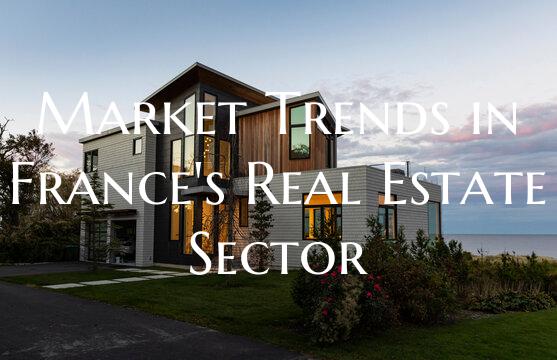Market Trends in France's Real Estate Sector

Market Trends in France's Real Estate Sector
The real estate sector in France has been experiencing notable shifts and trends in recent years, influenced by various factors such as economic conditions, changing demographics, government policies, and global market dynamics. Understanding these trends is essential for investors, developers, and homebuyers looking to navigate the dynamic French real estate market.
1. Urbanization and Demand
One prominent trend in France's real estate sector is the increasing urbanization of major cities, driven by population growth and a shift towards urban living. This trend has led to a rising demand for housing in urban centers, particularly in Paris and other metropolitan areas. Developers are responding to this demand by building high-rise apartments, mixed-use developments, and modern urban dwellings to cater to the preferences of urban residents.
2. Sustainability and Green Building
Another significant trend shaping the French real estate market is the growing emphasis on sustainability and green building practices. With increased awareness of environmental issues and the push for carbon neutrality, developers and investors are incorporating sustainable features such as energy-efficient design, green spaces, and renewable energy sources into their projects. Buildings with eco-friendly certifications, such as HQE (High Environmental Quality), are gaining popularity among buyers and tenants who prioritize sustainable living.
3. Rental Market Dynamics
The rental market in France has witnessed notable changes in recent years, influenced by factors such as housing affordability, regulatory reforms, and shifting preferences among tenants. Rental prices have been rising steadily, particularly in popular urban areas, leading to affordability challenges for many residents. The French government has implemented measures to regulate rental prices and improve tenant protections, which impact the overall dynamics of the rental market.
4. Impact of COVID-19
The COVID-19 pandemic has had a profound impact on the French real estate sector, causing disruptions in construction projects, sales transactions, and tenant preferences. Remote work trends have prompted a reevaluation of housing needs, with an increased emphasis on home office spaces, outdoor amenities, and access to green areas. The pandemic has also accelerated digitalization in the real estate sector, with virtual property viewings, online transactions, and digital marketing becoming more prevalent.
5. International Investment
France continues to attract significant international investment in its real estate market, driven by factors such as political stability, economic growth prospects, and the country's status as a global tourist destination. Foreign investors are drawn to the diverse range of property options in France, including luxury residences, commercial properties, and vacation homes. Paris remains a top destination for foreign real estate investment, with high-end properties and premium locations commanding premium prices.
In conclusion, the real estate sector in France is characterized by dynamic trends and evolving market conditions that offer opportunities for investors, developers, and homebuyers. By staying informed about these market trends and adapting to changing dynamics, stakeholders can navigate the French real estate landscape effectively and capitalize on emerging opportunities.
